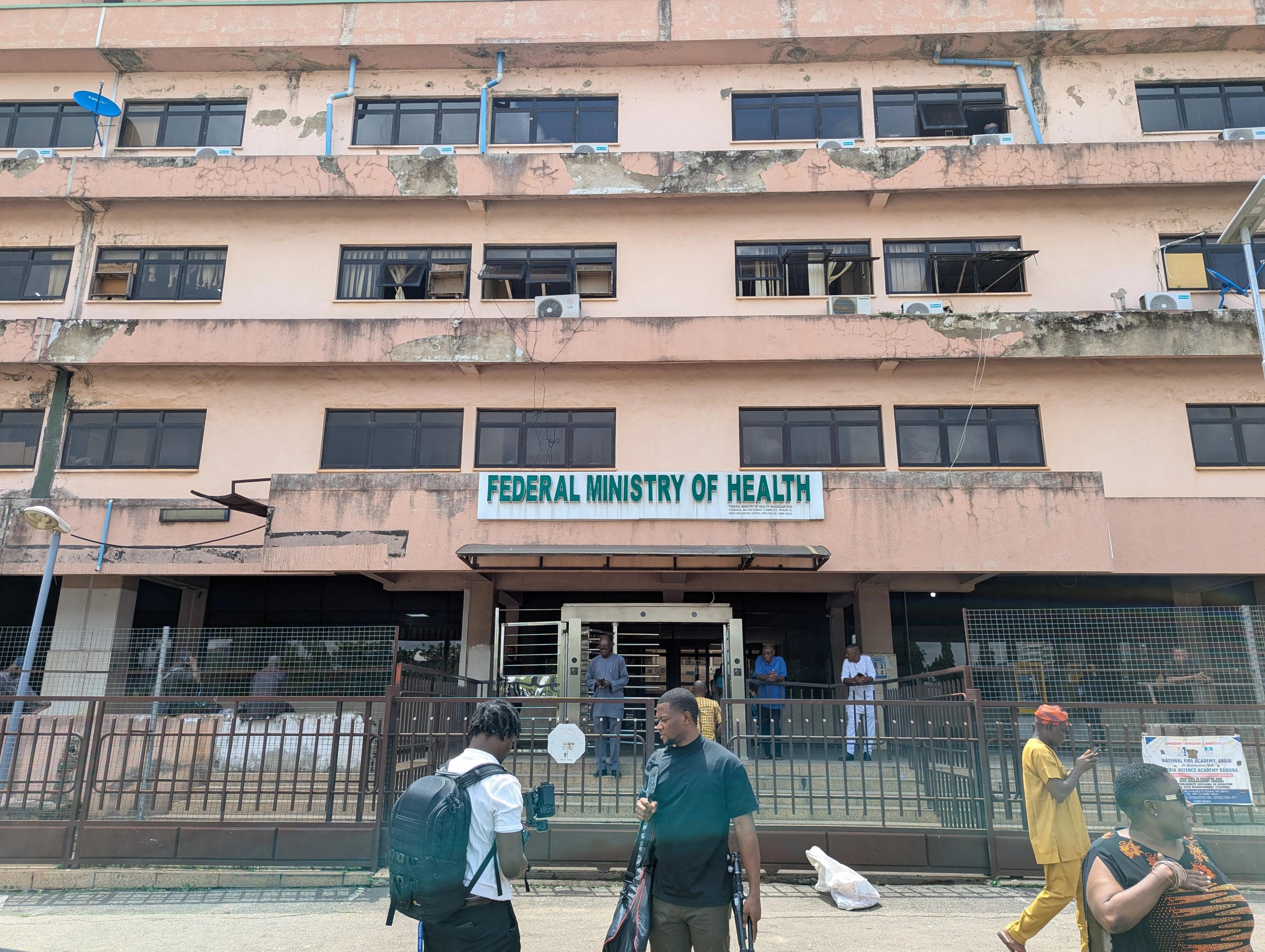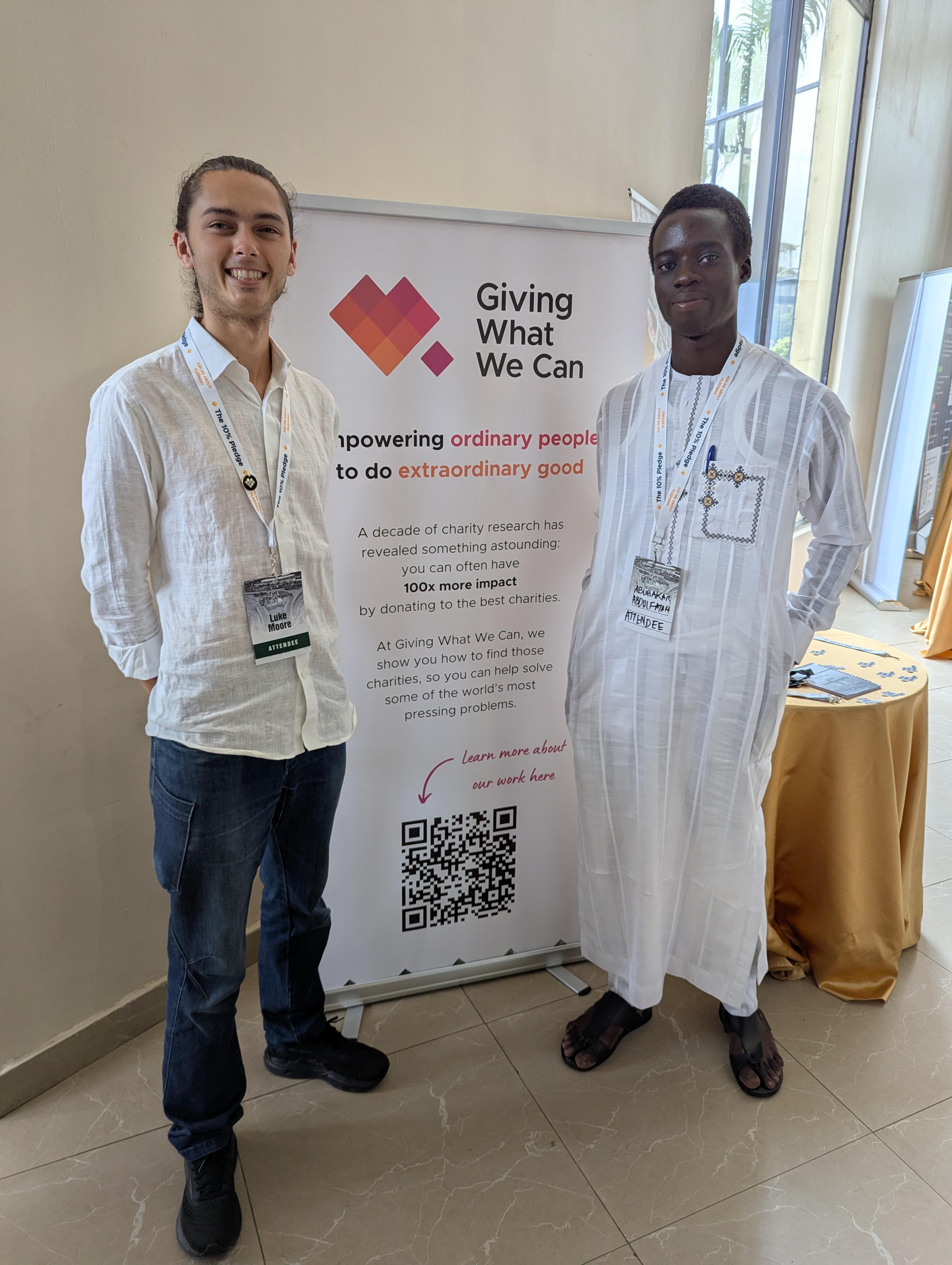What I learned about effective giving in Nigeria
I recently had the privilege of attending EAGxNigeria, where I connected with policymakers, practitioners, and community leaders to share Giving What We Can’s mission: promoting effective, high-impact giving. Along the way, I visited Nigeria’s Federal Ministry of Health and met with some of our supported charities to better understand the scale of the challenges – and the opportunities – for improving well-being in this vibrant country.

Above: The Federal Ministry of Health in Nigeria’s capital city of Abuja.
One statistic struck me deeply: a child born in Nigeria is 27 times more likely to die before their fifth birthday than one born in the UK. That stark reality framed every conversation about health and development for me. And yet, despite the challenges they’re up against, a growing number of local and international partners are driving evidence-based interventions that offer real, measurable hope. Many of our recommended charities are part of this story:
- Malaria Consortium protects children by distributing preventative medication at times of high malaria transmission. In Nigeria, malaria remains one of the most pressing health challenges, accounting for 27 percent of cases worldwide.
- Against Malaria Foundation just secured a deal to distribute 19.1 million mosquito nets across Nigeria in 2026–2027 which they estimate will result in 10,000 lives saved, 7 million cases of malaria prevented, and a huge boost to Nigeria’s economic outlook.
- Helen Keller International is tackling vitamin A deficiency, a serious health condition that robs millions of children of their sight and immunity. In the past year alone, they delivered two doses to 5.4 million under-5s in Nigeria, helping protect an incredible number of families from the devastating consequences of nutrient deficiency.
- New Incentives is showing that small cash transfers can boost childhood immunisation rates by 9-18 percentage points. When families are forced to choose between putting food on the table or paying for a motorbike taxi to a far-off clinic, even a modest incentive can help offset the real costs that stand in the way of getting their children vaccinated.
Several of the other programs we list on our donation platform (Lead Exposure Elimination Project, Family Empowerment Media, and Teaching at the Right Level Africa) are also doing vital work in Nigeria.
So, what does effective giving look like in a country where the stakes couldn’t be higher?
I came to Nigeria representing Giving What We Can, a global community built around a simple question: How can we make our donations do the most good? With over 10,000 members around the world but only a single Nigerian pledger, we were keen to find out how people here see our mission and its relevance – especially in a country, and a region, where so many of our supported programs operate.
At the conference, I spoke with attendees from across Nigeria and sub-Saharan Africa about these projects and about our broader aim: a world without preventable suffering or existential risk, where everyone has the chance to flourish. We pursue this by encouraging significant, effective giving as a social norm among those who can. I was humbled by how strongly the values of cost-effectiveness and rigorous impact resonated. By the end of the event, 19 new attendees had signed up to take a giving pledge.

Above: Here I am with Abubakar Abdulfatah, a third-year mechatronics engineering student who was one of the 19 people who took a giving pledge at the conference.
Meeting people at this conference in Abuja underscored an important truth: those closest to these challenges understand better than anyone how critical it is to make every naira, every pound, every dollar go as far as possible. With resources stretched thin, and enormous cuts from traditional funders like USAID, there is little room for inefficiency.
As I boarded my flight back to London, I thought about the 19 new pledgers, and the impact that their donations would represent. I thought about the challenges facing millions of people in the country I was leaving, all of whom hope for a better life. I thought about my own 10% Pledge, how it feels simultaneously insignificant and enormous: insignificant in the face of all the work that needs to be done and enormous in the lives of those who it will affect.
In Abuja, I learned how giving really can impact people’s lives, not with the next global philanthropy fad, but with vaccines, mosquito nets, and vitamins; boring, but evidence-based interventions that add up to a better chance at childhood, and a better chance at life.
Note: All identifiable individuals who feature in this article have given their approval and consent in advance of publishing.